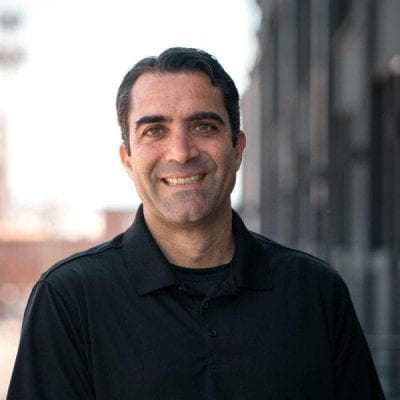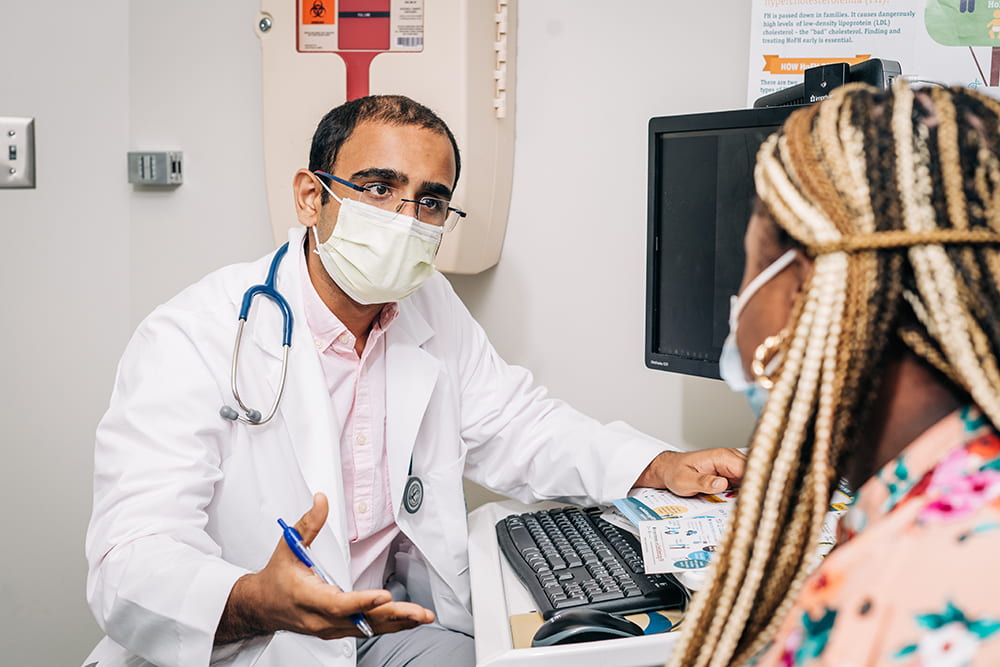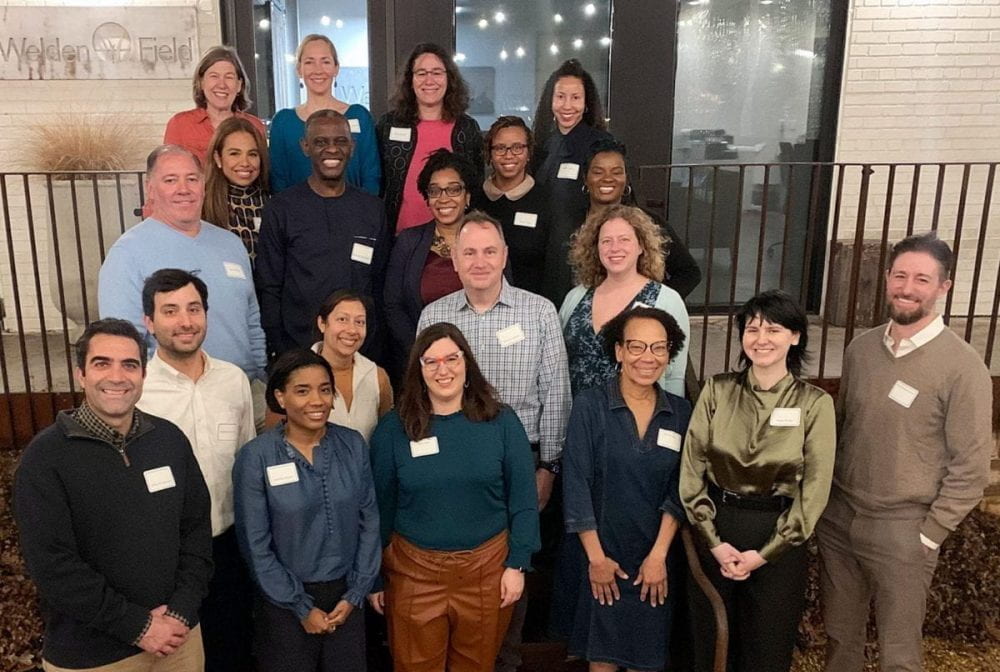Forge AHEAD Center Announces Fifth and Sixth Cohort of Scholars Focused on Advancing Cardiometabolic Health
The Forge AHEAD Center (FAC) is pleased to introduce the recipients of its pilot funding for the fifth and sixth cohorts – early-stage investigators dedicated to advancing evidence-based solutions that address cardiometabolic health challenges and differences in health outcomes across the Deep South.
These scholars are translating research into action to improve access to care and health outcomes for communities with limited healthcare resources. Join us to become part of a vibrant community not only focused on providing funding but dedicated to making a real difference together.
Fifth Cohort Scholars
Seven outstanding early-stage investigators were selected for innovative projects targeting cardiovascular disease, diabetes, and related conditions.

Keri Barron, Ph.D., MSN, BSN
Assistant Professor, University of Alabama
Project: Evaluating the Utilization of the Heart Truth Program® among Young Black Women in the Deep South
Focus: This project evaluates the reach and outcomes of a national educational campaign addressing cardiovascular health awareness and prevention for young Black women, tailoring efforts to meet the unique health needs of the region.

Kaylee Crockett, Ph.D.
Assistant Professor, University of Alabama at Birmingham (UAB)
Project: Pilot Testing of a Primary Care-Based Dyadic Cardiovascular Risk Reduction Intervention: “Heart Care Pairs”
Focus: Pilots an innovative dyadic intervention that engages primary care patients and their care partners, “Heart Care Pairs”, in shared health behaviors to reduce cardiovascular risks and improve long-term outcomes.

Deborah Ejem, Ph.D., RN
Associate Professor, University of Alabama at Birmingham (UAB)
Project: Enhancing Patient-Centered Care for Older African American Patients with Cardiovascular Comorbidities: Piloting the Patient Priorities Care Model at Cooper Green Mercy Health Service Authorities (PPC-HEART)
Focus: Explores precision, patient-centered approaches to improve co-occurring condition management among older Black patients at a safety-net primary care clinic.

Abbey Gregg, Ph.D., MPH
Assistant Professor, University of Alabama
Project: Challenges and Enabling Factors to Implementing Remote Patient Monitoring for Hypertensive Conditions of Pregnancy
Focus: This research examines how remote patient monitoring technology can support management of hypertensive disorders in pregnancy, particularly for Medicaid-insured populations, addressing logistical obstacles to improve maternal health outcomes.

Lucia Juarez, Ph.D.
Assistant Professor, University of Alabama at Birmingham (UAB)
Project: Development and Validation of a Diabetes Risk Score for Undiagnosed Hispanics Living in the United States
Focus: Develops and validates a diabetes risk score developed with community input to improve relevance and uptake to enhance early diabetes detection and prevention for Hispanic populations.

Seung-Yup “Joshua” Lee, Ph.D.
Assistant Professor, University of Alabama at Birmingham (UAB)
Project: AI-Guided Risk Stratification for Medication Reconciliation for Patients with Diabetes
Focus: Uses artificial intelligence to strengthen medication reconciliation and reduce medication adherence-related risks for patients living with diabetes.

Chin-Yen Lin, Ph.D., RN
Assistant Professor, Auburn University
Project: Feasibility and Acceptability of a Yoga Intervention in Heart Failure Patients with Mild Cognitive Impairment
Focus: Evaluates the feasibility and benefits of a yoga intervention developed with community input to enhance cognitive and cardiovascular health in rural areas.
Sixth Cohort Scholars
Six early-stage investigators join with projects addressing hypertension, diabetes, food insecurity, and cardiovascular health through innovative approaches developed with input from community partners.

Osayande Agbonlahor, M.D., Ph.D., MPH
Assistant Professor, University of Mississippi Medical Center
Project: Using a Physician-Patient and Community Advisory Board to Address Health Care Discrimination and Improve Cardiovascular Outcomes for Black Adults
Focus: Examines how approaches developed with input from community partners and stakeholders can build trust and improve cardiovascular outcomes among Black adults.

Dashauna M. Ballard, Ph.D., MPH
Assistant Professor, University of Alabama at Birmingham (UAB)
Project: Empowering faith-based communities to provide personalized diabetes self-management education and support (DSMES) in the Magic City: A pilot study
Focus: Implements a faith-based diabetes self-management program combining community health workers and remote monitoring to improve diabetes-related health outcomes in Black and rural communities.

Courtney E. Gamston, ScM, PharmD, BCPS
Assistant Professor, Auburn University
Project: Assessing the Feasibility and Preliminary Efficacy of a Hispanic Community Health Worker Program in a Safety-net Clinic
Focus: Evaluates a community health worker program to improve diabetes care and education among Hispanic populations at a safety-net clinic in Alabama.

Catheryn Orihuela, Ph.D.
Assistant Professor, University of Alabama at Birmingham (UAB)
Project: Impact of a Health Coaching Program to Improve the Health of Food Insecure Adults with Cardiovascular Disease
Focus: Tests a health coaching program designed to enhance nutrition access and improve cardiovascular health outcomes for adults with cardiovascular disease.

Chloe Taub, Ph.D.
Assistant Professor, University of Alabama at Birmingham (UAB)
Project: Pharmacist-Led Remote Patient Monitoring for Diabetes and Hypertension Management in Persistent Poverty Areas
Focus: Tests the feasibility of an AI-supported, pharmacist- and community health worker–led program to improve diabetes and hypertension management in areas with limited healthcare resources.

Gabriel S. Tajeu, DrPH
Assistant Professor, University of Alabama at Birmingham (UAB)
Project: A Clinical Decision Support Questionnaire to Identify Obstacles to Blood Pressure Control
Focus: Develops and tests a clinical decision support questionnaire to identify factors and logistical obstacles influencing blood pressure control and improve hypertension management among patients in a safety-net clinic in Alabama.
Supporting Scholarly Success
The Forge AHEAD Center is dedicated to fostering a collaborative environment that equips these scholars with the resources they need to succeed. Recipients will receive mentorship, strategic guidance, and funding to translate their innovative ideas into measurable health outcomes.
By addressing significant health needs related to cardiometabolic conditions, these projects aim to enhance health outcomes and care for communities experiencing healthcare challenges.
Advancing Health through Innovation
The Forge AHEAD Center remains committed to driving transformative research that improves cardiometabolic health outcomes for all populations across the Deep South. Together, our scholars and partners are forging a healthier future for all.
Stay Connected!
For more details about the scholars and their projects, visit the Forge AHEAD Center’s website. Early-stage investigators interested in applying for upcoming pilot funding cycles are encouraged to review application guidelines and deadlines online.














